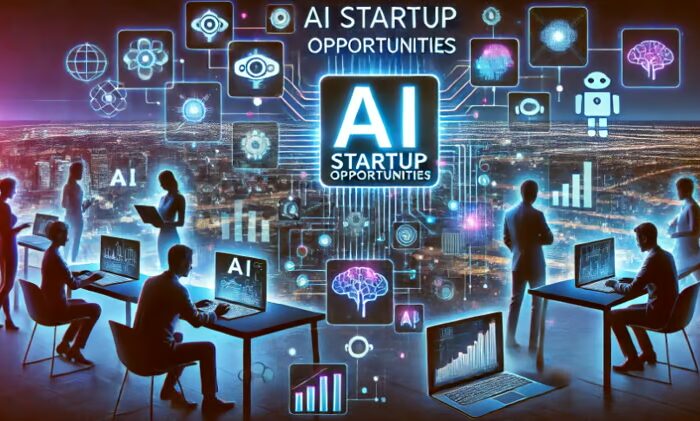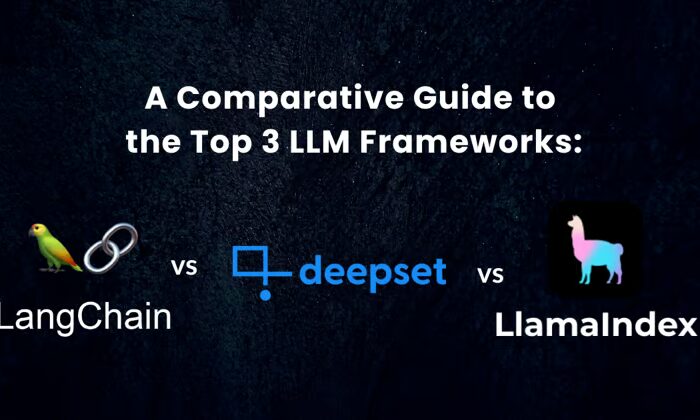
If you ask yourself, “What should I build with AI that has a higher chance of success?” this post will bring you closer to an answer.
YCombinator (YC) is one of the most renowned startup accelerators globally. Their ability to identify and nurture transformative companies has led to seismic shifts in various industries. With the rise of artificial intelligence, YC-backed AI startups have set the stage for the future of AI across sectors.
By analyzing 417 AI-focused startups from YC’s 2023 and 2024 cohorts, we can uncover meaningful patterns and trends to help you decide where to focus your energy when building with AI.
In this article, we will explore:
- The hottest industries for AI startups
- Key applications driving AI innovation
- Which AI sectors are untapped and ripe for disruption
- Common traits among successful YC-backed founders
Hottest Industries Dominating AI Innovation
One of the most apparent takeaways from this analysis is that specific industries are hotbeds for AI adoption. The data reveals which sectors are seeing the most activity and investment:

- Healthcare/Biotech: 45 companies (10.8%)
AI applications in healthcare and biotech are rapidly expanding. Companies like Elythea use machine learning to address critical issues like maternal mortality. AI’s ability to analyze vast datasets in real-time makes it indispensable in areas such as medical diagnostics, drug discovery, and personalized medicine. Startups that focus on AI-driven solutions for healthcare not only tap into a massive market but also solve life-saving problems, making them particularly attractive to investors.
- Fintech: 38 companies (9.1%)
Fintech is embracing AI to streamline operations, reduce fraud, and improve customer experiences. One example is Arcimus, which uses AI to audit insurance premiums, driving operational efficiency. The combination of financial data and AI’s predictive power opens up many possibilities, from algorithmic trading to risk management. As the financial services industry becomes increasingly data-driven, AI-powered fintech startups will continue to see explosive growth.
- Developer Tools: 37 companies (8.9%)
AI is increasingly becoming a tool for developers, with startups like Sudocode using AI to optimize coding processes. Developer tools augmented by AI help programmers write better code, debug more effectively, and automate repetitive tasks. As AI becomes more embedded in software and SAAS development, these tools will be integral to the next wave of digital transformation.
- Sales/Marketing: 34 companies (8.2%)
Sales and marketing are ripe for AI disruption. Companies like MicaAI use AI to streamline sales, helping businesses better understand customer behaviour and optimize their campaigns. The use of AI SAAS in sales is not just about automation—it’s about personalization at scale, helping businesses drive engagement and conversions more effectively.
- Education: 18 companies (4.3%)
Education technology (EdTech) is leveraging AI to personalize learning experiences for students. Studdy, for instance, offers an AI-powered tutor that tailors lessons to individual needs, offering a more efficient and effective learning process. AI’s potential in education is vast, from automated grading systems to creating personalized curricula that can adapt in real time based on a student’s progress.
These industries represent a significant portion of AI startups and are growing rapidly, making them ideal for founders looking to build impactful AI products.
B2B vs. B2C: Dominance of Enterprise AI SAAS
The breakdown of B2B versus B2C startups provides additional insights into where the biggest opportunities lie:

- B2B: 338 companies (81.1%)
B2B AI startups dominate the landscape, focusing on providing solutions that help businesses optimize their operations. Companies like GigaML, which enables enterprises to deploy large language models (LLMs) on-premise, highlight the significant demand for AI in enterprise contexts. Investors prefer B2B startups because they offer stable, recurring revenue models, and businesses are often willing to pay a premium for AI solutions that can provide a competitive edge.
- B2C: 79 companies (18.9%)
Although B2C startups make up a smaller portion of the total, there’s still massive potential in consumer-facing AI applications. Startups like Rex, an AI-powered fitness coach, show that personalized AI solutions for consumers are gaining traction. The B2C space remains underexplored, which means that there’s still room for innovative products that can meaningfully cater to end-users.
Key Insight: If you’re looking to build an AI startup, focusing on enterprise (B2B) SAAS will likely increase your chances of securing funding and finding early customers. However, there is still plenty of room for B2C innovation if you can identify a specific pain point that AI can solve.
AI Infrastructure vs. Applications: A Split Focus
Another important distinction in the YC-backed AI startups is between infrastructure and applications:
- AI Infrastructure: 62 companies (14.9%)
AI infrastructure startups, such as Epsilla, which provides a faster open-source vector database, are focused on building the backend systems that support AI development. These companies typically target enterprises and other AI companies, offering them the tools to scale their AI solutions. Building infrastructure is resource-intensive but offers long-term rewards as AI adoption increases globally.
- AI Applications: 355 companies (85.1%)
Most YC-backed AI startups focus on applications, creating tools that apply AI to specific industries. Companies like Corgea use AI to address cybersecurity issues, such as fixing vulnerable code. AI applications that solve industry-specific problems are seeing the most traction, and this trend is expected to continue as AI becomes embedded across different sectors.
Key Insight: Founders should consider whether they want to focus on infrastructure, which has high entry barriers but offers longer-term stability, or applications, which are easier to launch but face more competition.
AI-Driven Automation vs. AI-Assisted Workflows
Automation is the most significant use case of AI across industries, but there’s a split between full automation and AI-assisted human work:
- AI-Driven Automation: 129 companies (30.9%)
Startups like Ofone, which automates fast food order-taking at drive-thrus, are leading the way in AI-driven automation. These solutions reduce costs and improve efficiency, making them highly attractive to businesses.
- AI-Assisted Workflows: 288 companies (69.1%)
Companies like Constructive use AI to assist human workers rather than replace them. AI tools that enhance human capabilities—like copilots for construction teams or radiologists—are crucial in industries where human oversight remains essential. These startups are finding success by building products that complement, rather than compete with, human expertise.
The Untapped Frontiers: Industries Ripe for AI Disruption
While some sectors have embraced AI, others remain underexplored, presenting significant opportunities for first movers:
- Manufacturing: 4 companies (1%)
The manufacturing sector has been slow to adopt AI, but the potential for optimization is enormous. Through predictive maintenance, AI can revolutionize supply chains, improve product quality, and reduce downtime.
- Agriculture: 3 companies (0.7%)
Agriculture is another sector that has yet to embrace AI fully. AI-driven tools can improve crop yields, optimize water usage, and reduce waste. Startups that apply AI to agriculture could see significant returns as the demand for sustainable farming practices increases.
- Energy: 4 companies (1%)
AI has the potential to optimize energy consumption, integrate renewable energy sources, and improve grid management. As the world moves towards sustainable energy solutions, AI will play a pivotal role in managing the complexity of modern power systems.
Key Insight: If you’re looking to disrupt an industry with AI, focusing on underrepresented sectors like manufacturing, agriculture, or energy could give you a first-mover advantage.

YCombinator’s AI startup data offers a clear roadmap for aspiring founders. While B2B dominates, the B2C space is still ripe for innovation. AI SAAS solutions are more common than infrastructure solutions, but there’s a growing need for foundational tools to support AI’s expansion.
By focusing on sectors like healthcare, fintech, and developer tools, you can align your AI startup with the fastest-growing industries. However, if you’re willing to take a risk, industries like manufacturing and agriculture offer massive potential for disruption.
As you think about what to build with AI, remember Paul Graham’s advice: focus on the problems you want to solve. AI can reshape entire industries—if you choose the right one.
If you enjoyed the content, we would greatly appreciate it if you subscribed to our newsletters.
Subscribe To Get Update Latest Blog Post









Leave Your Comment: